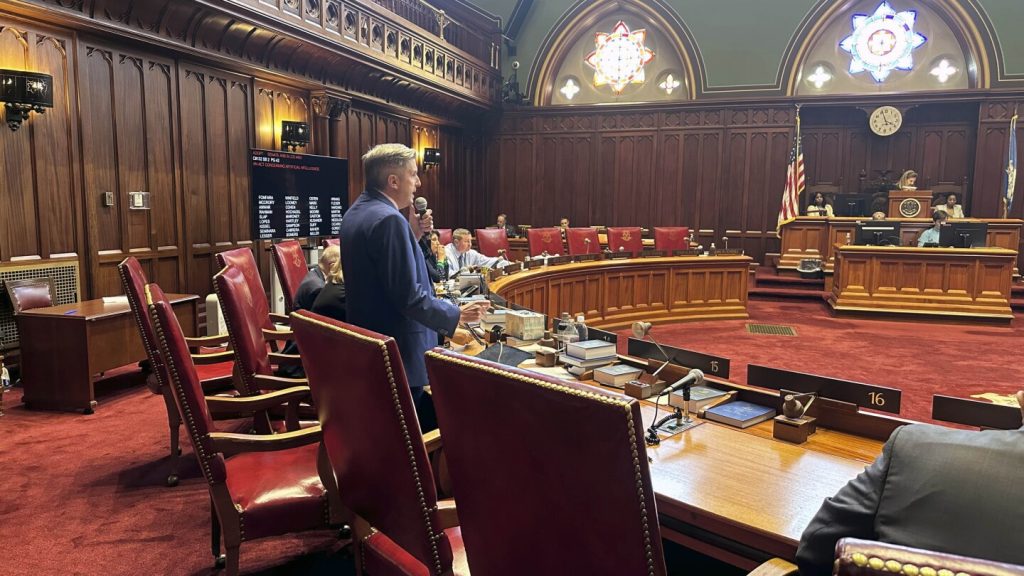The Connecticut Senate has passed a major legislative proposal aimed at regulating bias in artificial intelligence decision-making. The bill is one of the first of its kind in the U.S. and seeks to protect people from harm, including manufactured videos or deepfakes. The bipartisan group of legislators who worked on this bill over two years are hoping to prevent a patchwork of laws across the country, as Congress has not yet acted on this issue. Despite concerns about stifling innovation, burdening small businesses, and making Connecticut an outlier, the bill passed 24-12 after a lengthy debate.
Lawmakers from several states, including Connecticut, Colorado, Texas, Alaska, Georgia, and Virginia, have been collaborating on this legislation. They find themselves in the midst of a national debate between civil rights-oriented groups and the industry regarding the core components of the bill. Senate Minority Leader Stephen Harding expressed concerns that Connecticut senators were being rushed to vote on the bill, which he considers the most complicated piece of legislation of the session. He fears unintended consequences that could negatively impact businesses and residents in the state.
Some key Democrats, including Gov. Ned Lamont, have also voiced concerns about the bill potentially hindering an emerging industry. Lamont, who has a background in cable TV entrepreneurship, believes it is important to ensure that the legislation does not stymie innovation in a fast-moving space. The bill includes protections for consumers, tenants, and employees to target risks of AI discrimination based on various protected classes. It also criminalizes the spread of deepfake pornography and deceptive AI-generated media in political campaigns, and requires digital watermarks on AI-generated images for transparency.
In addition to consumer protection measures, the legislation creates an online AI Academy where Connecticut residents can take classes in AI. It also mandates that certain AI users develop policies to eliminate risks of discrimination. However, there are concerns that the bill does not go far enough, with advocates calling for more information disclosure requirements for companies before they can use AI to make decisions about individuals. The bill now awaits action in the House of Representatives, where further debate and amendments may be made before it can become law.
Overall, the Connecticut Senate’s passage of this AI regulation bill marks a significant step in addressing bias in decision-making processes and protecting individuals from harm. Despite concerns about potential negative impacts on businesses and innovation, lawmakers believe that the protections for consumers, tenants, and employees are essential. The bill also aims to prevent the dissemination of deceptive AI-generated media and provides opportunities for residents to learn about AI through an online academy. As the bill moves to the House of Representatives, further discussion and potential amendments will shape the final version of the legislation before it can be enacted into law.


